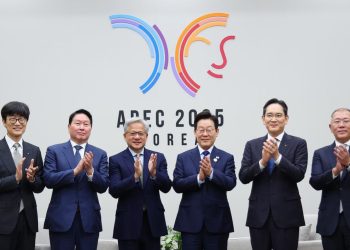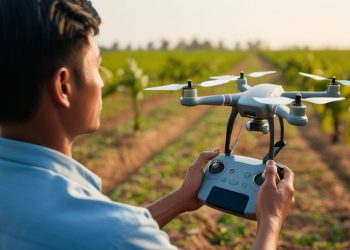South Korea has introduced a plan to strengthen its aerospace workforce by increasing the number of trained specialists from 300 to 1,500 per year. The long-term objective is to develop 30,000 professionals by 2045. This initiative was unveiled at the fourth talent cultivation strategy meeting, led by Acting President and Finance Minister Choi Sang-mok.
Led by the Korea Aerospace Administration (KASA), the plan focuses on building a space industry ecosystem amid the growing role of private companies in the New Space era.
The strategy includes the creation of a cross-sectoral education system to develop mission-driven experts capable of advancing South Korea’s aerospace ambitions. By expanding its talent pool, the government aims to enhance technological innovation and workforce readiness in key space sectors.
KASA aims to develop a workforce equipped for real-world challenges by increasing the number of aerospace trainees from 300 to 1,500 per year. To achieve this, the agency will work with multiple government ministries to nurture young talent in space science and train specialists focused on mission-driven projects. This approach ensures a continuous pipeline of skilled professionals to drive South Korea’s expanding space sector.
A key component of the plan is the introduction of space education programs for students and public outreach initiatives modeled after NASA’s Space Ambassador Program. KASA aims to integrate aerospace studies into elementary and secondary school curricula through after-school activities and South Korea’s high school credit system. The National Youth Space Center in Jeonnam will also offer specialized courses for aspiring high school students, granting academic credits upon completion.
Additionally, the government will focus on developing regional talent through space industry clusters in Daejeon, South Jeolla, and South Gyeongsang provinces. These clusters will work closely with universities to provide aerospace education and specialized training programs. Industry-university boot camps will also be introduced to help students gain hands-on experience and transition into the workforce.
Beyond supporting new talent, efforts will be made to enhance the skills of existing aerospace professionals. The Ministry of Trade, Industry, and Energy plans to include the aerospace sector under the Innovative Talent Special Act for Advanced Industries, which currently supports fields such as semiconductors and biotechnology. This initiative will provide companies with government-backed resources to strengthen their workforce.
South Korea’s space workforce remains significantly smaller compared to leading space nations. According to OECD data from 2023, the country has around 9,000 space professionals—far fewer than the United States (360,000), the United Kingdom (48,000), and France (32,000). To bridge this gap, the government is prioritizing talent development as a crucial step toward achieving its long-term goals, including a lunar landing in the 2030s and a Mars exploration mission by 2045.
As part of this effort, KASA plans to launch a practical training academy in 2027 designed to link education with corporate space projects. The agency will also establish a space technology education center to drive future aerospace advancements through partnerships between universities, industries, and research institutions. The government will expand its mission center initiative, currently limited to KAIST for satellite utilization, to further strengthen expertise, by designating four additional universities next year.







